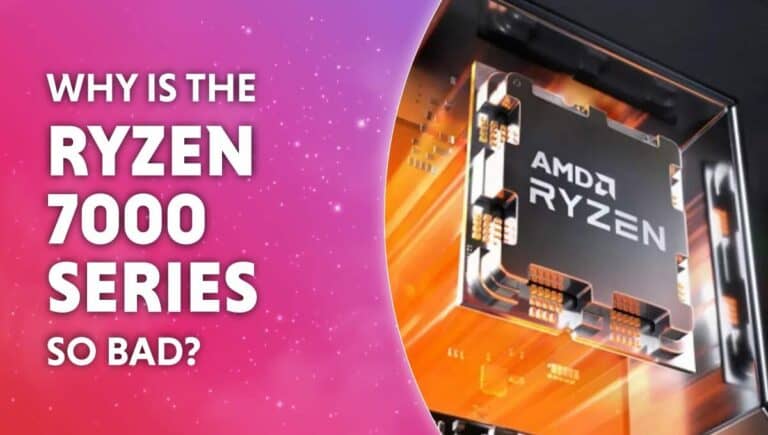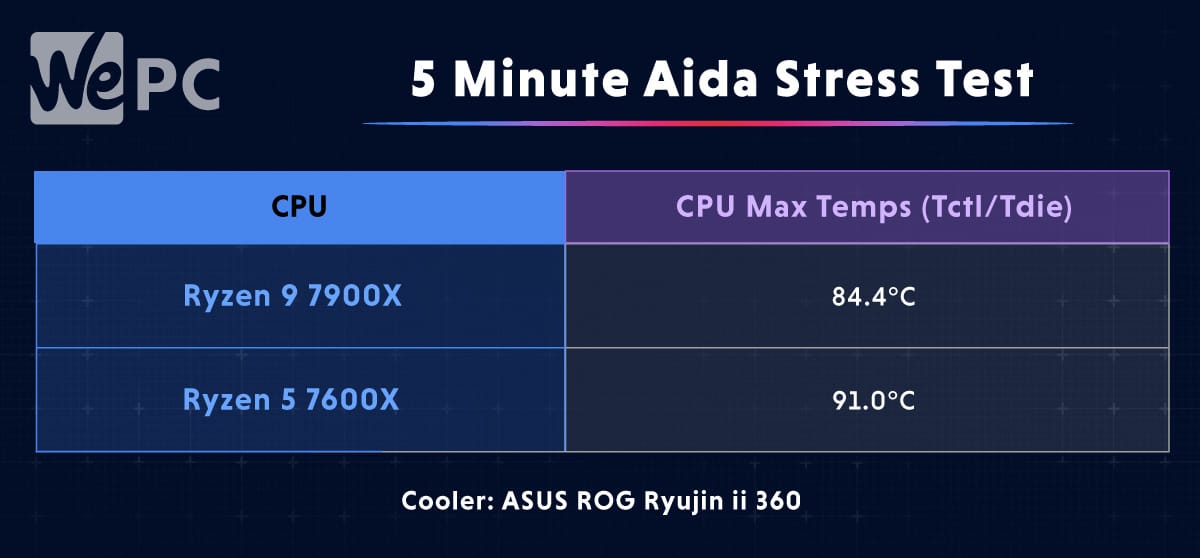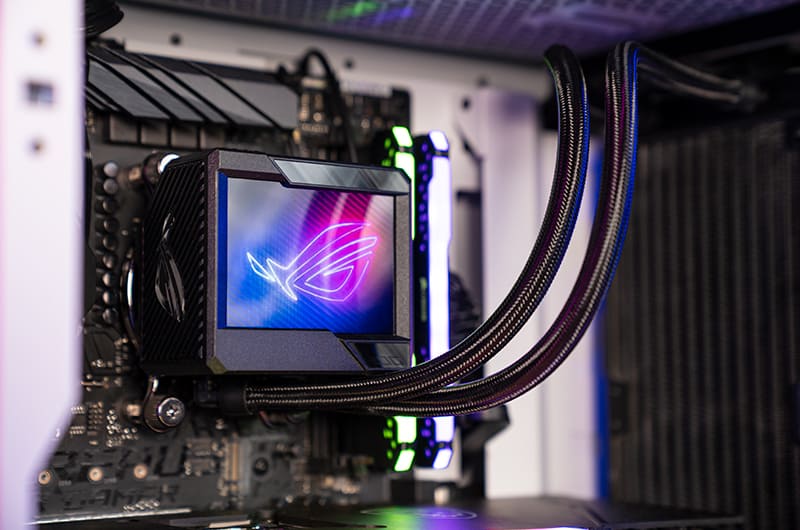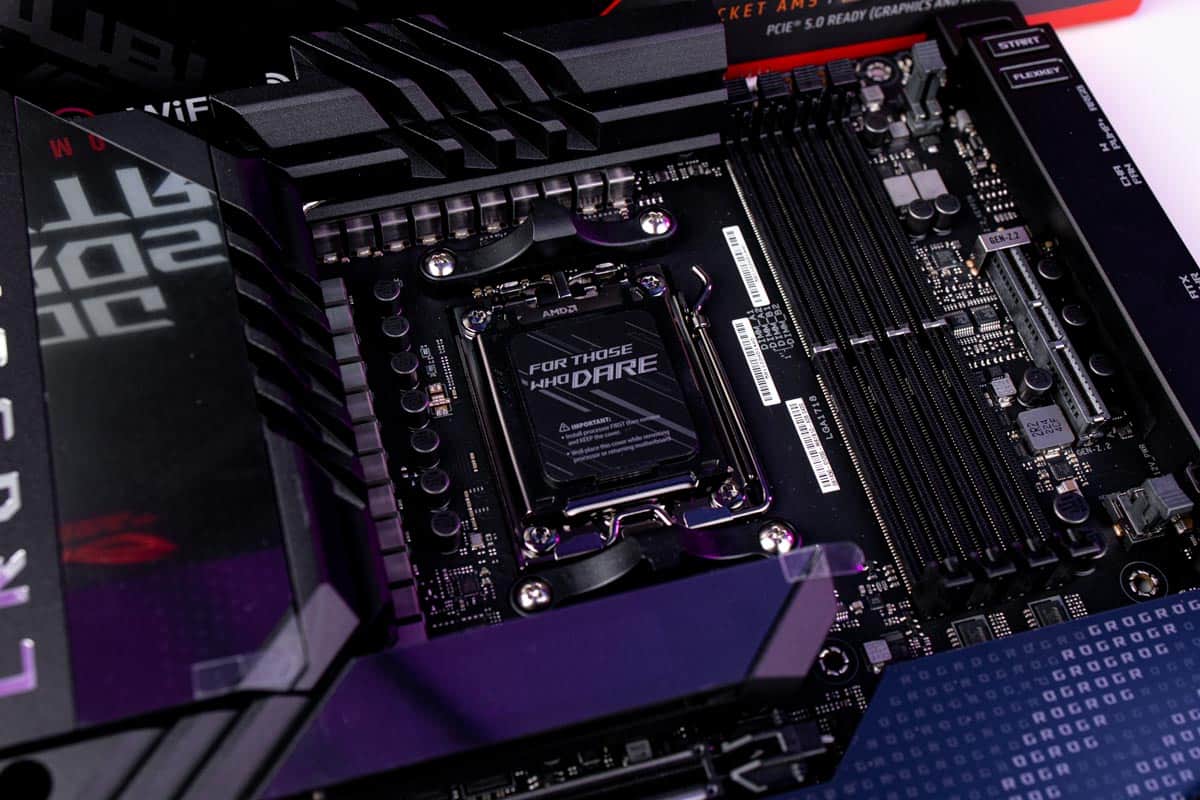
Okay, bad is a strong word, we just mean “not as good as it could be”
Updated: Oct 25, 2022 4:09 pm

AMD has certainly created waves within the industry over the last few years, all for good reason. The AMD Ryzen 7000 series was shaping up to be a big success, with benchmarks and leaks hyping PC enthusiasts worldwide.
Now read: Ryzen 7000 series runs HOT
Unfortunately, however, the Ryzen 7000 series hasn’t really lived up to expectations so far. It hurts to say that, as AMD has long been a favorite in the WePC office, but sadly, there have been some problems this time around. We’ve left out gripes about upgrading the platform as this is necessary at some point, but AMD could not have picked a worse time.
The issues of the Ryzen 7000 series
There are a few issues that plague the Ryzen 7000 series CPUs, we will attempt to explain them here and have it read as little like a rant as possible. Because we really, really wished the Ryzen 7000 series lived up to all the hype.
Heat
The Ryzen 7000 series of CPU run hot, really hot. This is meanly to do with the fact that AMD has packed as much performance into the CPU as possible whilst trying to retain compatibility with older AM4 coolers (more on that later).

Keeping the IHS the same size instead of spreading it out the full width of the CPU substrate has compromised surface area and therefore cooling. AMD Ryzen 7000 series CPUs are incredibly powerful, capable of drawing 230W from the socket at peak. Sadly, there’s almost nowhere for that heat to go.
AM4 cooler compatibility
To retain AM4 cooler compatibility on its AM5 platform, AMD decided to shape the IHS in a way that will allow the old coolers to make contact with the IHS. This involved making the IHS thicker to protrude out past the socket actuation mechanism to reach the cooler’s cold plate.

The issue with a thicker, smaller IHS is less heat transfer efficiency, you want a CPU Die to be as close to the cold plate as possible and with plenty of surface area to contact that cold plate. The bigger, the better.
We know what AMD was trying to do here, keep cooler compatibility to keep the cost down, we are needing to upgrade the whole platform in the middle of a recession after all. The issue is that the inefficient IHS makes most AM4 coolers simply not good enough to handle the higher-end SKUs, meaning we need to upgrade coolers anyway.
So we’d rather buy a new cooler because of a change in CPU chape that made for more efficient heat transfer, than buy a CPU cooler after being promised compatibility, only to find out that the IHS is so inefficient our cooler isn’t cutting it.
Performance
The Ryzen 7000 series is a phenomenal CPU series, do not get us wrong, with massive increases over the last generation as promised. But it just does not fare well against Intel’s 13th-generation CPUs.
The performance of the 7950X and 13900K is very similar in a lot of cases, with AMD taking the multi-core performance crown most of the time, but not by much.
With this in mind, we have to mention that the 13900K is $100 cheaper than the 13900K, runs much much cooler, and performs nearly the same, and that’s with 16 lesser E-cores (efficiency cores). Proving that Intel has really dialed in performance this round.
We will have to wait and see regarding performance for the X3D SKUs to arise, maybe then will AMD claw back some ground in the race of AMD Vs Intel.
Check out our AMD Ryzen 7000 series CPU reviews if you want to know more:
Motherboards
Uncapped and unchecked motherboard manufacturing sees titans like ASUS and Gigabyte releasing budget-level motherboards that cost more than the mid-tier Ryzen 7000 series CPUs. And with DDR5 still pretty expensive, this means the cost to adopt a Ryzen 7000 series CPU is a big one.

Intel has been on DDR5 and the LGA 1700 socket for a year now, meaning a lot of users need only pick up a new 13th gen CPU to access its power.
Final word
AMD make phenomenal CPUs and GPUs, we love them and always will. It is with a heavy heart that we essentially rant about how bad their new 7000 series is. It, unfortunately, didn’t live up to expectations and we have a duty to you to make sure you know the facts.
Intel is the winner this time around, and we never thought we’d say that. Intel has its issue too, but at least Intel is bringing something to the table other than CPU melting temps and mediocre performance. Technically AMD is a generation behind, and this is true. But it just seems like we were promised more than we got.
Between the IHS, performance, and heat issues, It’s no wonder AMD has reported a $1Billion lower than expected revenue. We look forward to the next generation of AMD CPUs.






